|
What you’ll need:
Chalice Cox-Hynd
1 Comment
lock people out, asking for a payment to return access of the personal files stored on the affected hardware. This new ransomware attack is being called “Petya”, although it is very similar to WannaCry it has not yet been confirmed that the same group of hackers have released it. Despite the fact that it hasn’t affected as many computers as its predecessor in May, this could change as security experts are having trouble finding a kill switch, dispelling hopes for a quick fix. On Wednesday June 28th the attack managed to spread to Asia and Australia but only in multinational companies that have branches in the affected European countries. A port in India was hit, owned by the Danish shipping company AP-Moller Maesk along with a Cadbury plant in Australia owned by US food group, Mondelez. Experts believe Petya has managed to spread using an exploit called EternalBlue - developed by the US National Security Agency (NSA), leaked in 2014 by a hacker group called Shadow Brokers. Earlier this year, Microsoft released patches to protect from the EternalBlue exploit, but because many companies cannot afford downtime on their computers to update and install the patch, the effect of these cyber-attacks has been severe. The motive behind this cyber-attack remains unclear, although Oleksandr Turchynov – Ukraine’s National Security Chief speculates an attack to cause mayhem in Ukraine. The rapid spread of the attack has affected Ukraine the most, but if Turchynov’s speculations are true, the plan backfired as the ransomware spread out globally to a further 60+ countries. Researchers worry that WannaCry was simply an experiment to see how much damage a cyber-attack of such scale could cause, as the kill switch was relatively easy to find. If Petya is an improved version, it could be the beginning of a much bigger attack. Filippo Cartoni Cleanses and detoxes have vastly risen in popularity in recent years, with different juices, diets and spices being the answer to a healthy happy life. These have all largely been debated as to whether they are really beneficial and even healthy.
We all have this nostalgic view of the good old days before the internet, before social media, before Virtual Reality, before 3D and before you could reach anyone at any given time – but is it all really a bad thing? Should we be giving our minds a rest and cutting ourselves off from a technology filly world every now and again? A digital detox is a temporary period of fully disconnecting from all digital devices to focus on social interaction, reduce stress, and be fully present in the world ‘offline’. The term ‘digital detox’ was added to the Oxford English Dictionary in 2013, just six years after the launch of the first iphone. Benefits of a digital detox have said to be things like being more peaceful, taking time to think more and connect more with those around and it is also said to make you more productive. But what if Digital detoxes aren't moving us onward. Instead, they make us think that the prehistoric time before the web, before social networks, or before a quarter of the world’s population were walking around with super-computers in our pockets was somehow superior to what we have now – endless possibilities and the wold closer and easier to access than ever before. Maybe we'll come to think that digital isn't toxic - in fact, it's quite the opposite. That the things we're urged to turn off can actually nourish us. That embracing the world as it is today is healthy, and that switching it all off, without consideration or moderation, is just as mad as starving yourself for 100 days and nights with only drinking a mix of water and pepper to nourish you. Hybrid is a word that is being thrown around a lot lately – mostly for cars to promote their eco-friendly nature, but it appears that the trend is catching on and being spread across a multitude of other tech advancements. The brand new Nintendo Switch was announced just a few weeks ago and it is being described as the world’s first hybrid console. But what does that mean? The Switch is expected to hit the shelves on March 3rd, although it is already available for pre-order with a price tag of £279.99. This is seemingly steep for a handheld device, especially comparing it to Nintendo’s past devices such as the 3DS and the 3DS XL released in 2011, but the Switch is much, much more than that. With the Switch, gamers will be able to carry it around where they please and use it as a simple hand held device – slotting in the cartridge and diving into their preferred game, but it’s also fully convertible to a console. The innovation is in the two controller wings, which are fully detachable and can be hooked together to create a single controller. The screen can then be balanced on a surface, or fitted into a dock that connects to a television screen, simulating your classic console experience. That’s no lie.
A lot of the hype around the Switch will be made by these accessories, and Nintendo are taking full advantage of that. Buying a secondary set of controllers will cost about £70, and a secondary dock will be around the same price, enabling the switch to be readily attachable to more than one TV screen. All in all, the £279.99 is actually only a base price, which will easily shoot up by a couple hundred pounds.
Although the Switch will truly be a hybrid gaming experience, allowing players to be fully immersed whenever and wherever they may be, right now it seems that only the die-hard Nintendo fans will be running after it on the release date. Whether it will set a new standard for home gaming, or meet the same unfortunate fate the Wii U did is for the future to tell. Filippo Cartoni
If you’re feeling a little more miserable today than you usually would on a Monday, there’s an explanation for it. The third Monday of every year has claimed a title for itself, after Cardiff University’s Dr. Cliff Arnall worked out an equation based on weather, motivation levels, failure to follow through with new year’s resolutions, and other factors that tend bring people down. The result was blue Monday, and you’re living through it today.
Although scientists have pushed the idea of Blue Monday aside as pseudoscience, people continue to talk about it. We can all agree that January definitely isn't one of the happier months of the year, so here are our top five easy tips to make your day a little better. 1. Have a Cheeky Cheat Treat.
If you're trying to cut down on the calories, more power to you! However - today you're excused, so use it and make yourself feel a little better by reaching for that chocolate bar you told yourself you wouldn't touch... and another, and another...
2. Compliment Someone
This one's a bonus because it works both ways. You should be doing it everyday - but if you find yourself thinking "his haircut looks nice", or "she looks great in that shirt", don't be scared to say it out loud. You'll put a smile on someone's face, and you'll walk away feeling good about yourself too. Try it!
3. Smile if You Make Eye Contact
Do you ever catch yourself gazing directly at someone without noticing? Don't lie, I see you staring. Why not try to smile at them. Smiling releases endorphins, and they're responsible for feelings of euphoria, which in turn boosts your happiness. Turn that frown upside down, just don't be awkward about it.
4. Book a Spontaneous Holiday
It may not be in everyone's reach, but your paid holidays have just been renewed for the year, so don't be scared to use them, it'll give you something to look forward to! We're all a bit short on cash in January, but a flight to Italy can be as cheap as £9.99 - and you know you've spent more than that on a night out.
5. Listen to the Right Music
Lastly, it may seem like a good idea to listen to sad songs when you're feeling a little under the weather, but don't do it because it will only worsen your mood. Instead, listen to songs that are more upbeat. You'll see they help, and if you feel like getting up and dancing, go for it!
Filippo Cartoni The final bank holiday of summer has come and gone, which for many signals the UK summer coming to an end.
Summer festivals have become incredibly popular in recent years, with an estimated 14 million people attending them in the UK alone. The August bank holiday is particularly popular for festival goers who flock to Reading and Leeds festival for a weekend of music, camping, no sleep, mud, drinking and pretty dire food. For some, this combination makes for the most ideal bank holiday, however for others they’d prefer a cleaner and more relaxed way to spend the weekend. Media coverage is essential for those who chose to avoid Reading & Leeds festival this weekend, but are still Red Hot Chilli Peppers fans or enjoy a bit of grime from the likes of Stormzy. TV and radio coverage of UK festivals allows you to enjoy the music from the comfort of your living room by watching it on the TV or via radio. Whilst, of course, it doesn’t begin to match the experience of the atmosphere that’s to be soaked up in the crowds of a festival, TV and radio coverage does allow for you to experience the best quality version of the music, with an average saving of £300, along with the best view as you don’t risk being stuck behind a group of 6ft males who enjoy a good mosh pit. This summer marked 20 years for the BBC’s coverage of Glastonbury, the world’s largest greenfield festival. Despite the BBC celebrating its score year covering Glastonbury, they announced a reduction in TV coverage by 5 hours. The BBC announced viewers would be able to watch 25 hours of live coverage across the weekend, a reduction from the past 2 years which saw a total of 30 hours across the weekend. Instead, radio coverage increased with more than 60 hours being devoted to radio as well as the BBC uploading a lot of content onto their new BBC music app in order to encourage traffic through here. It’s not only festival coverage where we are witnessing a current and future shift in types of broadcast; this can also be anticipated by the viewership figures from this summer’s Olympics. TV viewership for this year’s Olympics saw around a 20% decrease compared to previous years. Online platforms and apps saw a large increase in traffic, displaying the swap from devices used for viewing. This has led many to already start reflecting on viewing methods for Tokyo 2020 in four years time. The general expectation is that we are likely to see an even larger rise in the shift from live TV to alternative broadcast methods, such as phone and tablet apps, which can be used on the go. This reduction in TV coverage and an increase in concentration on other platforms, whilst only small at the moment for festivals, still make you question the future of festival coverage. Will we gradually lose the opportunity to view festival highlights live on our TV in favour for moving with the modern age and seeing a shift to coverage being focused through apps, iPlayer on laptops/computers/tablets and online radio? Carys Bedford TV and Radio Coverage We may not be able to provide mud filled, cider filled TV and radio coverage, we do offer the best editorial coverage for brands and charities alike. IMN Content are the UK’s lifestyle news and consumer content providers - we are able to provide any UK radio and TV stations with spokespeople and guests so if you would like to get your brand heard then please click here to get in contact or call us on 020 7717 9696 or email [email protected] Today, the latest RAJAR figures for the second quarter of 2016 were released, and coming out on top was one of the UK’s first hit commercial stations, Capital FM. The station has grown from strength to strength and the last year has shown a rapid growth in the stations listenership figures.
Listener figures climbed to one million in just one year, gaining 365,000 listeners in three months. This boost signifies a record reach for the fourth consecutive quarter. Renowned for breaking new artists and providing their audience with the best mainstream music, Capital FM is one of the most admired commercial radio brands with 2.3m listeners. Capital London also widened its audience lead, thanks to the ‘Capital London Breakfast Show’ which pulled in 1.1m listeners every week. Dave Berry, George & Lilah are responsible for having the most listened to show on the network as the majority listeners are during breakfast. Successfully hitting the largest radio audience numbers in London and growing their audience by 3%. Sister station Capital Xtra is also reaching incredible figures as 1.3 million people tune in each week to hear the freshest music and their favourite presenters and DJ’s. Following another strong quarter the umbrella station has an active 371,000 listeners in one year across the UK. Capital FM is a great representation of the talent and content the Global media network provides. Although the Capital brand is doing well, other Global stations are not doing so great. Heart is now London’s third most popular radio station despite recording a 13.1% year-on-year fall in the average audience to 1.74 million - losing around 694,000 since last year. This was apparently due to Bauer brands mirror station Magic’s fall. Nonetheless 56% of Capital FM’s audience aged 15 – 34 are media savvy and on trend. They are more likely get involved with Capital through a number of digital mediums such as DAB, the station app, social media and phone lines. In addition to the original forms of listening, these formats ultimately have a huge influence on the station’s progression. Katie Hopkins. The newspaper columnist and ex apprentice star who has offended pretty much everyone in the UK has landed her own show on LBC. She’s referred to refugees as ‘cockroaches’, and women breast feeding in Costa apparently ‘puts her off her latte’. She described dementia patients as ‘bed blockers’, and tweeted that ‘Ginger babies. Like a baby. Just so much harder to love’. Not forgetting the crème de la crème of them all – Katie criticised parents who name their children after ‘places’, despite her own child being named ‘India’. This is only the tip of the big offensive iceberg that is Katie Hopkins.
Her weekly programme was launched on Sunday 10th April, and will run every Sunday from 10am to midday, broadcasting on FM in London and on digital nationwide. Katie promised she would bring ‘straight talking and honest commentary to the weekend schedule’. “I’m here with my own show” she bellows, “which I’m sure many of you will be delighted with”. I went into listening to Katie’s first show with an open mind; it’s comforting to think that she is miss-quoted in the press and that people love a ‘pantomime villain’ style character. Katie doesn’t seem hesitant or nervous; she is fairly natural as a radio presenter, particularly as it’s her first show alone. First up on her itinerary is David Cameron’s tax affairs, she boasts that she supports people being wealthy and paying as little tax as possible as she ‘hates the HMRC’. Anyone that disagrees with her opinions is seemingly labelled a ‘lefty’ or a ‘hypocritical Guardian reader’. She describes how she went to witness the protests outside of parliament in light of David Cameron’s tax avoidance and is ‘ashamed’ by the people she saw. She then drops a massive generalisation, calling the protestors ‘the great unwashed’. Poor Ruben from Stockport is her first caller. Whilst he is talking, she doesn’t engage, she shuffles her papers and gives one word answers until he finishes and she can go off into a one-sided spout. She can most definitely be described as a ranter – not a listener, which probably isn’t practical for a radio talk show host. I would give Katie one slight bit of praise. When she is reading mean tweets that people have written about her, her answers are amusing. She can dish it out but she can most certainly take it back. When a women with the handle @pam_mussett tweets her some abuse, her simple response is “I’m sorry that you got called Pam.” Thankfully the show does become less abrasive as it goes on, which makes it more listenable. I think as time goes on, Katie will tone down the act and maybe even listen to what other people have to say. Spokespeople At IMN we stride to form good relationships with radio presenters (perhaps not Katie Hopkins). We always provide good quality content and spokespeople for radio presenters, whether it is news or programming, from factual to lifestyle pieces. For more information on how your business, or you can be involved please click here to get in contact or call us on 020 7717 9696 or email [email protected]. Constant access to smartphones and WiFi means children are more vulnerable than ever when it comes to the internet, but can parents take back control when it comes to technology? Children and technology This week, someone told me that a baby in her family (her dad’s cousin’s baby?!) was fully capable of using an iPhone at the tender age of 18 months. At one year and 6 months old they understood how the locking mechanism of an iPhone worked. I’m never around children, I have no younger siblings and my friends aren’t having babies yet so I haven’t really witnessed this first hand, but I keep hearing similar stories and the thought of it is concerning. Only this week the NSPCC revealed research* in which half of children admitted to viewing sexual, violent or adult-themed material online. Not only this, 8 out of 10 children aged 11 to 17 broke the rules of social media sites such as Facebook and signed up for an account when they were too young. This is particularly shocking, as the content published on Facebook isn’t monitored in a way to protect children. Of course, Facebook has vast ‘banned content guidelines’ including ‘what nudity can be shared’ - but you only need to scroll down your feed to come across an explicit video It’s unsurprising half of children have been exposed to this sort of content. It isn’t only social media showcasing graphic content to children; gaming is a huge problem for parents. Although scientists can’t seem to agree on the physical effects of gaming within children, the exposure to content in games like Grand Theft Auto and Call of Duty can only be negative when played to the excess. Parents and technology
We live in a time where children are generally more knowledgeable than their parents when it comes to technology. In terms of social media there’s Instagram, Facebook, Twitter, Tinder, Snapchat and there is access to these sites 24 hours a day with the use of smart phones, 4G and constant WiFi. The same applies for gaming. In the last five years, a study by Ofcom found** that 91 per cent of children live in a household with internet access, but that only half of parents of 5 to 15yearolds supervised their children’s internet use. There are things parents can do, and there are blocks that can be put on certain websites, but no one can fully monitor children’s use of different social media sites and gaming habits, particularly when they’re out of the house. We recently teamed up with Groupon, producing research that revealed almost half (45%) of parents believe their children spend too much time on digital devices - yet 49% admitted to using them as a way to entertain their children. So, overall some parents hate their children using digital devices, but see them as an ‘electronic babysitter’. What can parents do? In this tech-centric time it is important that parents talk to their children about their use of social media activities, as it is something that they cannot stop. Dr. Mark Griffiths, Professor of Behavioural Addiction at Nottingham Trent University, said: “Parents do have responsibility for their children; they should be taking an active engagement in what their children are doing.” “Parents are role models – it’s good to sit down as a family and have a meal together with no phones or tablets at the table.” Regarding the research from Groupon, Dr. Mark describes the importance that children have social skills to help them in school and take them into the work place. Excessive use of video games can be detrimental to this. Parents shouldn’t prevent their children from using screen based entertainment, however there needs to be a distinct balance. Peter Wanless, NSPCC chief executive, added: “It’s vital that parents sit down together with their children regularly to talk about which social media sites they are using, and how to get help if they need it.” What Can We Do? Here at Independent Media News, we strive to offer informative, newsworthy content that will appeal to digital and broadcast journalists. Our news stories will always be interesting, containing a credible spokespeople. Using a credible spokesperson ensures we build good relationships with journalists. For example, Groupon highlighted how families were spending less time together due to children’s reliance on digital devices. By using a Professor of Behavioural Addiction, he is able to refer to his own research to support the research that Groupon conducted. This made the campaign extremely successful, gaining great coverage across the UK. For more information please click here to get in contact or call us on 020 7717 9696 or email [email protected]. * http://www.telegraph.co.uk/news/2016/04/04/half-of-children-view-adult-or-violent-material-online-says-poll/ ** http://www.telegraph.co.uk/technology/internet/9223507/Can-parents-control-the-websites-their-children-look-at.html Last month, TalkRadio was launched. As the sister station to talkSPORT, talkSPORT2 and Virgin Radio – the new station promises to ‘bring something new and fresh to the world of radio’. TalkRadio promises to fill a controversial gap in the broadcasting market, claiming it will ‘shake-up’ the speech radio category – covering a wealth of subjects from celebrity culture to the big issues within politics. The presenters will hear opinions from listeners, politicians and celebrities. The Presenters
In the run up to its launch, the most controversial aspect of the station has been the line-up of presenters. Paul Ross will be the new breakfast host, after he left the BBC following a drug scandal at the end of 2014. Former Member of Parliament for Bradford West – renowned for his Big Brother antics, George Galloway will be taking to the mic on Fridays and Iain Lee will also make a triumphant return to the airwaves after his contentious sacking from BBC three counties after he clashed with a Christian Lawyer live on air – calling her ‘bigoted’. Also joining this ‘eclectic’ mix will be Eamon Holmes, Sam Delaney and Julia Hartley-Brewer. So, apart from the presenters, what else will TalkRadio bring to listeners? The speech radio genre has existed for years in the UK and includes the likes of BBC4, LBC and Radio City. Speech Radio What makes TalkRadio different is its casual nature. Although it is renowned within the genre, I personally view stations such as BBC4 with a slight stigma. Although I don’t find them insufferable, I often think that they are aimed at an older audience and widely discuss conservative topics that can sometimes exclude certain listeners. After listening to TalkRadio’s mid-morning show with Julia Hartley-Brewer, I came across an unusual debate between a roofer and an accountant, in which they were discussing which profession consisted of better drivers (I think they concluded that it is roofers, but accountants are more likely to claim on insurance – if you were interested). What has been missing from the talk radio genre is something relatable for all ages and types of people. I think the UK needs a radio station that can discuss what profession has safer drivers, but can then seamlessly go on to discuss the threat of North Korea and the ‘nutter’ in charge (as Julia so profoundly described Kim Jong Un) – if this continues to be done right this station will fit a niche in the genre that has previously been vacant. Like any new radio station, it will in time come into its own, but this combination of outspoken presenters and ‘stimulating’ debate featuring on TalkRadio is well worth a listen. In time, I personally think these factors will put it up there with its sister station TalkSport in terms of its witty banter and serious debate. Radio Spokespeople Talk radio regularly needs spokespeople and interesting on-air guests. IMN Content are the UK’s lifestyle news and consumer content providers. IMN are able to provide any UK radio stations with spokespeople and guests so if you’re a member of the UK radio industry and would like free content then please click here to get in contact or call us on 020 7717 9696 or email [email protected] Chloe Shepherd - Digital Media Liaison @ Independent Media News @IMNcontent |
AuthorsFilippo Cartoni Archives
October 2018
Categories |



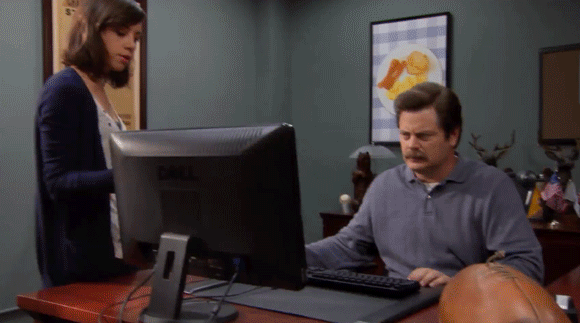
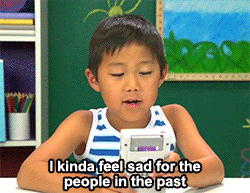

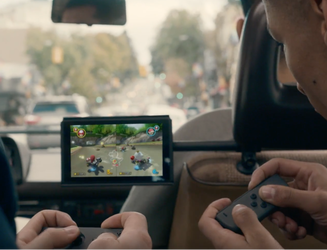


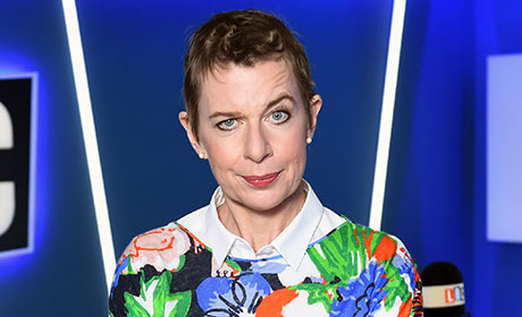
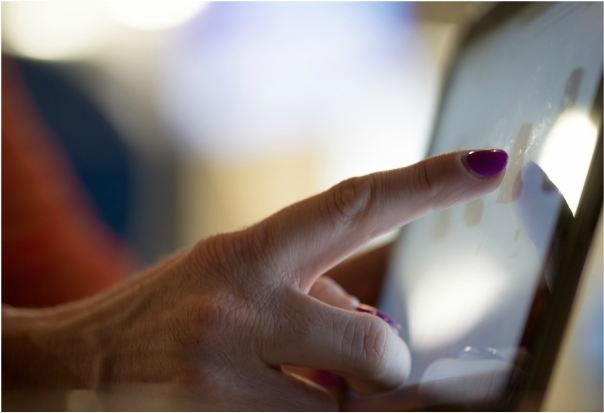
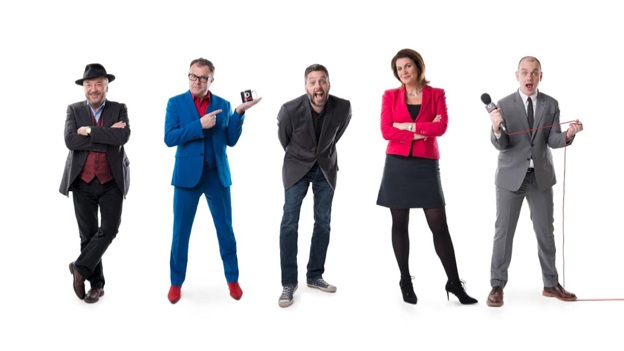
 RSS Feed
RSS Feed
